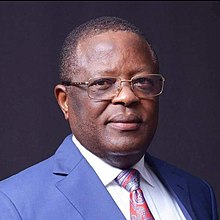Organized labour has urged African governments to insist on fair international trade, and not undermine the rights of African workers and their national development objectives in their desperate quest for foreign investment.
Addressing the Working committee meeting on Trade and Industrial Policy of INDUSTRIALL global union in Colombo, Sri Lanka on Monday 6th of November Comrade Issa Aremu, observed that decisions of multinationals to invest in Africa “are often inspired by access to vast market, tax holidays, cheap raw materials and supply chains, subsidies and low wages rather than mass decent sustainable jobs, technology transfers and national development.”
Aremu who is also the Vice President of INDUSTRIALL global union for Africa said miserable low wages, long hours of works, child labour and what he called “labour dumping and direct importation of cheap prisoner- workers” to Africa make up the new motivations for some Chinese investment in Africa.
The labour leader therefore cautioned African governments to be weary of trade and investment deals which he alleged would consign them perpetually to the status of producers of raw materials, export base for foreign multinationals’ products as distinct from developing producer economies.
Comrade Aremu who argued that international trade issues are “too important and too weighty” to be left with governments alone expressed labour support for the recent proposals by 90 developing countries including Nigeria demanding for changes in the rules of World Trade Organization (WTO) that put constrains on national development priorities. He said the demand for fair international trade must be linked with development of African economies. “Africa should copy China by also adding value to its abundant natural raw materials, create jobs for its youthful population, and stop uncritically clapping for China which takes the Continent’s raw materials, dumps finished goods and even imports prisoners/workers to Africa” he said. He observed that China had dramatically uplifted 250 million citizens out of absolute poverty through job-led growth, mass industrialization and infrastructural development in the last two decades. “What was good for China is even more desirable for Africa” he said.



